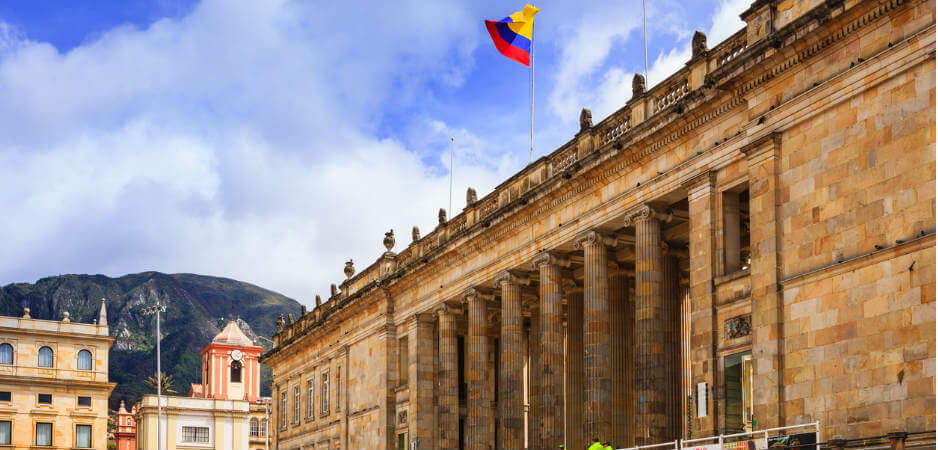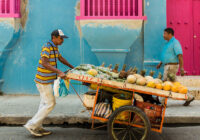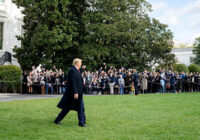If corruption is not eradicated to level the political playing field, the systemically flawed democratic process will destroy any prospects of a lasting peace in Colombia.
Colombia’s big city streets are full of ambulant vendors offering you anything from chewing gum to a single cigarette to prepaid cell phone minutes. Walking through Bogota’s roads during the first weeks of 2017, you could also purchase a small booklet detailing the new public conduct code. For the first time in over two decades, the government has updated the code that now includes significant fines for offenses such as loitering and jaywalking.
This new reality for the average Colombian contrasts starkly with the political corruption currently pervading the government, so it is not just average Colombians who need to revise their code of public conduct. Today, international corruption scandals such as those disclosed in the Panama Papers have stained the reputation and credibility of the highest echelons of the Colombian political class.
Corruption is an urgent issue that must be tackled if Colombia expects the ongoing implementation of the peace treaty with the Revolutionary Armed Forces of Colombia (FARC) to succeed in achieving a lasting peace and a robust democracy.
Dark Forces and Dirty Money
To many observers, and even some political figures, the implementation and execution of the peace deal would represent the end of dirty money and dark forces within civil society and politics in Colombia. However, as the dust of armed civil conflict and fratricidal war begins to settle for the first time in half a century, Colombia must tackle the swamp of corruption that has been quietly spreading within the country’s leading institutions.
Recent corruption scandals throughout Latin American have highlighted the importance of a free and robust press as well as the systemic weaknesses and lack of transparency of Colombia’s democratic institutions. For instance, throughout the last two decades, it is estimated that the Brazilian construction giant, Odebrecht, paid some $800 million in political bribes throughout a dozen countries in order to secure the construction of public projects.
Another major source of corruption controversies in Colombia is the state-owned petroleum company, Ecopetrol. For instance, a decade ago, Ecopetrol began construction on the ambitious Reficar project to build South America’s largest oil refinery in the coastal city of Cartagena. Today, the project is yet to be completed, has gone over budget by $4 billion dollars, and ongoing investigations point towards mass contracting fraud, possibly implicating the ministerial cabinet.
It is tragic that the FARC has intended to advance its political agenda through violent means for more than fifty years. However, the level of systemic corruption uncovered puts into perspective other deep-seated issues facing the country. Furthermore, the reliance on corrupt practices by mainstream politicians and political parties in Colombia will be a severe impediment to the successful implementation of the peace treaty with the FARC guerrillas.
As part of the peace treaty with the national government, the FARC is set to transition into a democratic political formation—a FARC political party, yet to be officially formed—with representation in Congress and participation in electoral politics. This has sparked contentious debate within Colombia given that the FARC party is guaranteed a number of seats in the national Congress during the next two electoral periods while it completes its transition into national politics. While some politicians argue that this measure is necessary for the FARC to successfully become a non-violent political movement, those who opposed the peace treaty claim that such a concession to the FARC is too generous and undemocratic.
Unfair Advantages
Nevertheless, given its extremely polarizing nature, the eventual FARC party will be held to higher standards and put under higher scrutiny in terms of transparency and financing than Colombia’s traditional political players. The freedom with which mainstream political formations in Colombia utilize dirty money to finance their campaigns and keep their electoral machines running is shamefully evident to all sectors of civil society.
After weeks of mounting public pressure and revelations, President and Nobel Peace Laureate Juan Manuel Santos made a public declaration on March 14, 2017, recognizing the presence of illegal funding during his 2010 presidential campaign. President Santos stated that he was unaware of said funding at the time and called for those responsible to be punished.
The uneven playing field that will exist between the FARC and mainstream parties in Colombia could jeopardize the proper functioning of the democratic transition agreed to in the peace deal. The transition mandates that all guerrilla fighters convene in specified camps throughout the country to hand over their weapons and begin reintegration into civilian life, all of this under the supervision of the United Nations.
Simultaneously, mid and high-level FARC officials will go through a special court process where they will confess their illegal activities in exchange for shorter and alternative sentences. Finally, the FARC party commits to non-violent political participation without funding acquired through illegal activity, under the supervision of the competent national authorities. In this regard, the corrupt practices that are part of the machinery of mainstream political parties will represent an unfair advantage over the FARC party and could give the FARC a legitimate reason to cry foul against the government, potentially undermining the negotiated peace itself.
If corruption is not eradicated to level the political playing field, the systemically flawed democratic process will destroy any prospects of a lasting peace. Even though some 6,000 guerrilla members have already demobilized as part of the implementation of the peace treaty, several members are defecting and hedging their position by staying in place while the process evolves. Some of these are FARC elements involved in illegal economic activity that could easily morph into drug-financed non-state actors. They include the Daniel Aldana mobile column and the Teófilo Forero column as well as Front 48 and Front 57.
As Colombia traverses a unique and historic moment, the Colombian people must pressure the political class to revise its own code of public conduct and possibly hand out booklets throughout the power halls of Congress. If not, we can expect new non-state actors to emerge either as fully rogue criminal groups or as political proxies for the FARC party. The latter scenario is particularly likely, especially if the future FARC party decides that it needs a dirty political machine to do its groundwork.
*[Young Professionals in Foreign Policy is a partner institution of Fair Observer.]
The views expressed in this article are the author’s own and do not necessarily reflect Fair Observer’s editorial policy.
Photo Credit: ChandraDhas
Support Fair Observer
We rely on your support for our independence, diversity and quality.
For more than 10 years, Fair Observer has been free, fair and independent. No billionaire owns us, no advertisers control us. We are a reader-supported nonprofit. Unlike many other publications, we keep our content free for readers regardless of where they live or whether they can afford to pay. We have no paywalls and no ads.
In the post-truth era of fake news, echo chambers and filter bubbles, we publish a plurality of perspectives from around the world. Anyone can publish with us, but everyone goes through a rigorous editorial process. So, you get fact-checked, well-reasoned content instead of noise.
We publish 2,500+ voices from 90+ countries. We also conduct education and training programs
on subjects ranging from digital media and journalism to writing and critical thinking. This
doesn’t come cheap. Servers, editors, trainers and web developers cost
money.
Please consider supporting us on a regular basis as a recurring donor or a
sustaining member.
Will you support FO’s journalism?
We rely on your support for our independence, diversity and quality.







